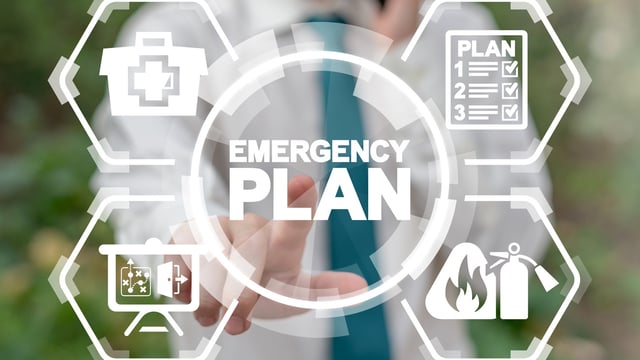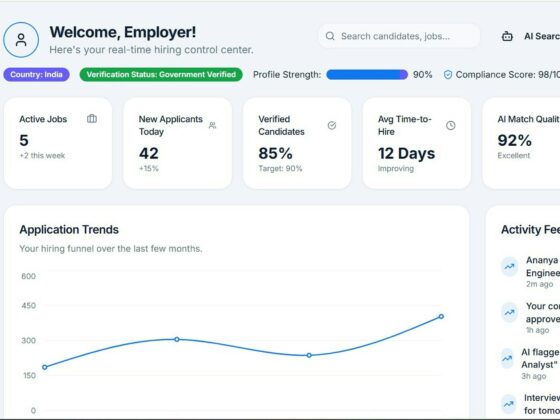
In a high-turnover, high-expectation industry where one crisis can cost millions, safety tech can no longer be an afterthought. Smart Hotel Manager, founded by Vanessa Osbourne, is redefining emergency preparedness with its Live Safety platform—a mobile-first solution designed for modern hotel teams. And it all started with a conversation about water damage.
“A hotel executive once shared a story of a water leak that occurred early one morning, which staff couldn’t locate for nearly an hour. The result? Hundreds of thousands of dollars in damage and a major hit to the property’s reputation. All because staff weren’t trained or equipped with the tools to act quickly,” said Osbourne, a Black Belt-certified process improvement leader with a background in oil and gas. “That’s when I realized the hospitality industry urgently needed a modern, mobile-first solution, something customizable to each property but simple enough for any staff member to use during a high-pressure situation.”
Turning Process Expertise Into Safety Innovation
Drawing on experience managing high-risk industrial operations, Osbourne saw a striking contrast between the tools used in oil and gas—real-time data, automation, mobile-first training—and the binders still sitting at hotel front desks.
“I realized hotel teams didn’t just need digitized paperwork,” she said. “They needed something intuitive, immediate, and built for the way hospitality actually operates: fast, multilingual, and mobile.”
That insight sparked the development of Live Safety, Smart Hotel Manager’s flagship platform. Built over two years and officially launched as an LLC in 2023, the mobile app delivers proactive emergency guidance, location-based asset management, compliance tracking, and staff training—all in the palm of a hotel employee’s hand.
From Compliance to Culture Shift
Live Safety isn’t just a digital filing cabinet for fire plans. It’s a shift in how hotels approach safety readiness with an emphasis on proactive training for employees.
The app includes FEMA- and OSHA-inspired audio guides covering over 20 types of emergencies, from gas leaks to guest altercations. It’s customizable to each property’s layout, team, and language needs. And its features—like GPS-enabled shutoff valve locators and a “mass alert” button for real-time staff notifications—reflect a practical understanding of hotel operations.
“Together, this proactive and accessible approach creates a cultural shift, from reactive emergency response to ongoing preparedness across all hotel departments,” she adds.
Solving Pain Points Others Overlook
For hotel operators, Smart Hotel Manager targets several common and costly challenges:
- Water damage mitigation through GPS-guided shutoff maps
- Staff turnover support with mobile, repeatable micro-training
- Emergency response delays reduced by clear, multilingual audio guides
- Compliance management digitized for easier audits and updates
- Lack of property-level visibility, now addressed via an admin dashboard that lets corporate teams track usage and training gaps
These features aren’t hypothetical. A recent pilot with Remington Hospitality spanning nine properties resulted in faster engineering response times, stronger staff engagement, and real-world prevention of costly incidents.
A Lean Team with a Big Vision
Smart Hotel Manager operates with just 14 core team members, supported by contractors and international software partners. The company is still self-funded—a deliberate choice, Osbourne said, to stay focused on solving operational problems, not chasing VC growth metrics.
“We’ve built our ecosystem to be agile,” she said. “That allows us to customize solutions quickly and maintain high-touch support as we grow.”
Growth is already underway. The company is pursuing a partnership with a leading panic button provider to integrate alerts with its training and response tools. It’s also preparing to expand internationally, with new multilingual capabilities launching soon.
Purpose-Driven Tech That Scales
Beyond its commercial goals, Smart Hotel Manager also runs a nonprofit initiative, Lanterns for Light, which recently built a solar-powered digital library in Sega, Kenya. The facility offers access to digital books, safety training, and STEM education for thousands of local students—all powered off-grid.
“It’s about using technology for good,” said Osbourne. “Whether it’s a luxury hotel in the U.S. or a rural school abroad, everyone deserves tools that help them feel safe and prepared.”
The Bigger Message for Hospitality Leaders
Osbourne’s advice for hotel executives is simple: “Don’t wait for a crisis to realize your gaps.”
She believes safety should be a daily habit, not a dusty binder.
“Mobile-first tools let your team carry knowledge with them, not rely on memory or paperwork during a crisis,” she said. “Preparedness is no longer optional. It’s your responsibility.”
For hotels navigating lean staffing, aging infrastructure, and rising guest expectations, that’s a timely reminder.








